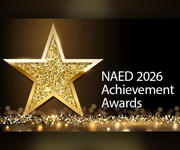 GREENVILLE, S.C. — GE Vernova Inc. announced that it was selected for award negotiations by the U.S. Department of Energy’s (DOE) Hydrogen and Fuel Cell Technologies Office (HFTO) to lead a project aiming to enable permitting and safety for hydrogen deployment. The project has the objective to identify the primary challenges to siting, permitting, and installation across the value chain from hydrogen production through end-use. GE Vernova will lead a diverse project team named “H2Net”, including Clemson University and Roper Mountain Science Center based in Greenville, South Carolina. GE Vernova will enter award negotiations valued at $1 million in U.S. federal funding with the DOE to finalize the terms and the scope of the project.
GREENVILLE, S.C. — GE Vernova Inc. announced that it was selected for award negotiations by the U.S. Department of Energy’s (DOE) Hydrogen and Fuel Cell Technologies Office (HFTO) to lead a project aiming to enable permitting and safety for hydrogen deployment. The project has the objective to identify the primary challenges to siting, permitting, and installation across the value chain from hydrogen production through end-use. GE Vernova will lead a diverse project team named “H2Net”, including Clemson University and Roper Mountain Science Center based in Greenville, South Carolina. GE Vernova will enter award negotiations valued at $1 million in U.S. federal funding with the DOE to finalize the terms and the scope of the project.
As part of this program, H2Net is expected to develop an AI Assistant that is trained specifically on the relevant, critical documents for safe H2 handling and permitting. The AI Assistant, called HySAGE, Hydrogen Smart Assistant for Governance Execution, will be validated against requirements and lessons learned at GE Vernova’s Gas Turbine Manufacturing and Technology Center in Greenville, SC. HySAGE will aim to enable state-of-the-art modeling capability and flexibility for incorporating all necessary codes and standards and environmental scenarios to increase the versatility and accuracy of the tool.
“These investments in clean hydrogen showcase the Administration’s commitment to making clean energy a win-win for all Americans—by contributing to a sustainable zero-carbon future, while boosting economic opportunities across the country,” said U.S. Secretary of Energy Jennifer M. Granholm. “These projects will work hand in hand with historic investments in the Hydrogen Hubs and electrolysis technologies to accelerate progress towards a clean hydrogen economy that will deliver good-paying, high-quality jobs and accelerate a renaissance of American manufacturing.”
“The success of our regional clean hydrogen hubs—and the national clean hydrogen strategy—hinges in large part on advances in technology that will grow clean hydrogen’s economic potential,” noted Dr. Sunita Satyapal, director of the U.S. Department of Energy’s (DOE’s) Hydrogen and Fuel Cell Technologies Office and coordinator of the DOE Hydrogen Program. “At the same time, we need to ensure that siting and permitting are done in the safest, most efficient way possible as hydrogen infrastructure expands across domestic markets. By identifying ways to address siting and permitting challenges, these projects will complement other large-scale investments in clean hydrogen by the Biden-Harris administration and will play a vital role in contributing to our nation’s clean energy future.”
“We are proud to be a part of the DOE’s commitments to reduce CO2 emissions and accelerate the progress towards a more sustainable economy with less carbon emissions,” said Jeremee Wetherby Carbon Solutions Leader at GE Vernova. “Our project proposes to reap the benefits from artificial intelligence and explore new and innovative ways to handle hydrogen deployment safely, while investing in trainings for the community and our workforce. We are grateful for the collaboration with Clemson University and Roper Mountain Science Center, which will bring their expertise respectively in the development of AI applications and in K-12 science curriculum and exhibit development.
“We are excited to collaborate with GE Vernova on this DOE project,” said Xiaoyong (Brian) Yuan, Assistant Professor, Holcombe Department of Electrical and Computer Engineering at Clemson University. “Leveraging our expertise in AI and large language models, we will work together to develop innovative solutions that overcome technical and operational barriers to the safe deployment of hydrogen technologies.”
“Roper Mountain is thrilled to share the innovative advancements in hydrogen energy with the next generation of our workforce through hands-on exhibits, curriculum, and instruction,” said Michael Weeks, Director of Roper Mountain Science Center. “This investment will help us to build and to educate a more sustainable future.”
Tagged with AI, GE Vernova




